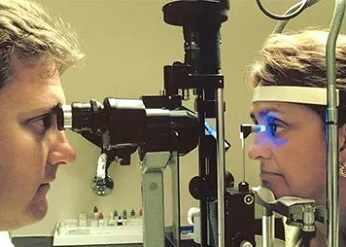Glaucoma News: American Study Finds That Dysregulated And Decreased Estrogen Levels Are Associated With Increased Risk For Glaucoma!
Nikhil Prasad Fact checked by:Thailand Medical News Team Nov 22, 2023 2 years, 3 months, 2 days, 18 hours, 2 minutes ago
Glaucoma News: Glaucoma, a leading cause of irreversible blindness affecting around 80 million individuals globally, poses a significant public health challenge. Primary open-angle glaucoma (POAG), the most common form of glaucoma, is characterized by retinal ganglion cell (RGC) death, optic nerve degeneration, and progressive visual field loss. While various risk factors have been identified, including genetic factors, aging, positive family history and ancestry, the only modifiable risk factor is elevated intraocular pressure (IOP).

In recent years, attention has shifted towards exploring the role of dysregulated estrogen levels in glaucoma pathogenesis. This shift comes as a result of studies indicating an inverse correlation between estrogen levels and glaucoma risk. This
Glaucoma News report delves into the findings of a study conducted by Augusta University, Georgia-USA, Icahn School of Medicine at Mount Sinai, New York-USA, and Duke University, North Carolina-USA, shedding light on the association between dysregulated and decreased estrogen levels and an increased risk for glaucoma.
Estrogen and IOP Regulation
In the complex interplay of factors influencing IOP, estrogen emerges as a potential key player. Traditionally associated with its role in the female reproductive system, estrogen is one of five steroid hormones, with 17β-estradiol (E2) being its primary active form. Clinical, epidemiological, and genetic studies have consistently demonstrated an inverse relationship between estrogen levels and IOP, with decreased estrogen levels associated with elevated IOP and an increased risk of glaucoma.
Several noteworthy findings contribute to this understanding. The onset of menopause, characterized by a low estrogen state, has been linked to increased IOP and glaucoma risk. Similarly, a shorter fertility duration, marked by late menarche or early menopause/ovariectomy, is associated with a higher risk of glaucoma. Conversely, the use of postmenopausal hormones (PMH) among menopausal women has been shown to decrease IOP and glaucoma risk compared to those without PMH. Additionally, IOP tends to be lower during hyper-estrogenic phases of the menstrual cycle and pregnancy.
Genetic studies have provided further insight, revealing a significant association between specific single nucleotide polymorphisms (SNPs) in estrogen metabolic and signaling pathway genes and POAG. The loss of aromatase, the enzyme responsible for converting androgens to estrogens, in female mice has been linked to elevated IOP and RGC loss, emphasizing the role of estrogen in ocular health.
Estrogen Signaling and the Trabecular Meshwork
To comprehend the impact of estrogen on glaucoma etiology, an understanding of the anatomical structure of the aqueous humor (AH) outflow pathway is crucial. This pathway includes the trabecular meshwork (TM), Schlemm's canal (SC), and distal vasculature. The TM, consisting of uveal, corneoscleral, and juxtacanalicular (JCT) layers, plays a central role in regulating AH outflow.
Estrogen signaling, with its diverse effects on extracellular matrix turnover, focal adhesion assembly, actin stress fiber formation, mechanosens
ation, and nitric oxide production, is implicated in maintaining IOP homeostasis. By influencing these processes, estrogen may regulate the conventional outflow pathway, offering a potential target for therapeutic interventions aimed at IOP control.
Future Directions and Limitations
While significant progress has been made in understanding the role of estrogen in IOP regulation, questions remain unanswered. Identifying the specific estrogen receptors responsible for the observed effects and determining the primary site of estrogen signaling within the outflow pathway are crucial steps for future research. Additionally, considerations about the potential side effects of systemic estrogen therapy, such as an increased risk of breast cancer, must be addressed before developing targeted therapeutic approaches.
Conclusion
In conclusion, the association between dysregulated and decreased estrogen levels and an increased risk of glaucoma represents a promising avenue for further research and potential therapeutic interventions. Evidence from epidemiological studies, genetic associations, and in vivo and in vitro studies consistently supports the protective and regulatory role of estrogen signaling in IOP homeostasis and glaucoma development.
As researchers continue to unravel the intricate relationship between estrogen and glaucoma, the hope is that targeted interventions can be developed to manage elevated IOP and mitigate the risk of glaucoma, offering new possibilities for preserving vision and improving the quality of life for millions of individuals worldwide.
The study findings were published as a review in the peer reviewed journal: Experimental Eye Research.
https://www.sciencedirect.com/science/article/abs/pii/S0014483523003469
For the latest
Glaucoma News, keep on logging to Thailand Medical News.
